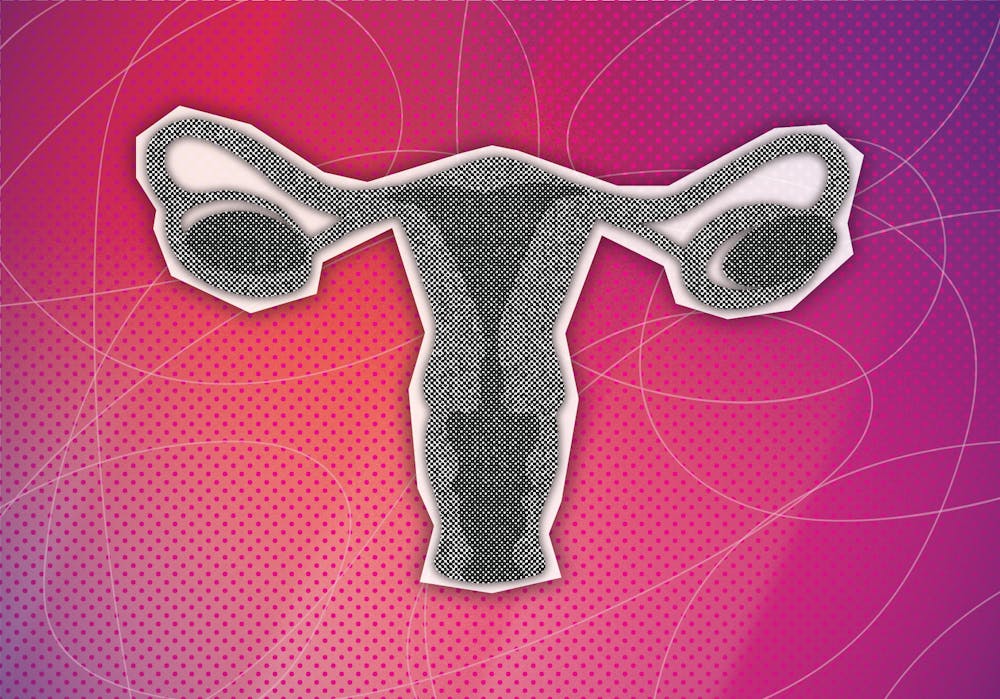In the fall of 2021, Miami University first-year Clara Hemrick was killing time.
She was in Martin Dining Hall’s market waiting for some food she had ordered and began browsing the shelves full of snacks and convenience store-type items. Hemrick walked past the aisle housing toiletries and personal care items. She found toothpaste, allergy medication, condoms and pregnancy tests.
“I feel like there's kind of a gap here,” Hemrick thought to herself.
The missing piece?
Emergency contraception.
An idea is born
Hemrick, now a sophomore, came up with an idea to provide Miami students with emergency contraception on-campus. She brought the idea to sophomore Ryan Parker, a friend she met through both of their involvement in Associated Student Government (ASG). Parker agreed there was a need for accessible emergency contraception.
Emergency contraception can be used to reduce the chance of pregnancy up to 72 hours after unprotected sex. Once the medication is taken, it prevents or delays ovulation which prevents the release of an egg from the ovary.
The two brought their ideas to Steve Large, assistant vice president for Student Life, who focuses on health and wellness at Miami.
“He was super in favor of it,” Parker said.
The idea of having emergency contraception available on college campuses isn’t new. Other universities like Cornell University, George Washington University and Boston University have all invested in offering emergency contraception to students.
After doing some research, Parker and Hemrick settled on a vending machine-type model, similar to Boston University, instead of offering it in Miami’s markets.
Enjoy what you're reading?
Signup for our newsletter
“[This] is almost preferred because with the markets, it’s only open for a certain number of hours,” Parker said. “But with this we’re hoping to get it someplace with 24-hour access.”
Making contraception affordable
Parker and Hemrick also hope to make emergency contraception more financially accessible. While it’s available at large chains like CVS and Walgreens, it can cost more than $50. The pair aren’t sure how much it will cost for students, but they’re hoping it will be less than larger chains in the area.
“If a college student is unable to afford buying Plan B, they're not going to be able to afford raising a child…” Hemrick said, “and all the other expenses that come with it.”
Between the cheaper price and on-campus location, they hope more students are able to use the medication if needed.
“Even though it’s an ‘over-the-counter’ medication, it might not physically be on the shelf,” Large wrote in a statement to The Miami Student. “Shoppers may need to ask a store clerk for assistance, which can be intimidating.”
Large wrote that while the location of the machine hasn’t been determined, it will be discreet and convenient for students.
Parker and Hemrick have already attained the funds, $3,500, to pay for the machine and first round of emergency contraception. They’re currently waiting on the university to work out the details of the project. They said the machine could be available to students next fall semester.
“We're still kind of working out those logistics with a bunch of different departments on campus, but everyone has been overly supportive so far,” Parker said.
Since plans for the machine were made public, Students for Life of America has started an online petition opposing the project. It’s not clear how many signatures the petition has garnered.
Other than the petition, the two said they haven’t had much negative feedback from the majority of students.
And while Miami will be the first university in Ohio to offer emergency contraception, it may not be the last. Parker said the pair has heard from Ohio State University's student government which hopes to add a machine of its own.
“So many people share this passion with us about reproductive choice and reproductive freedom,” Hemrick said.




